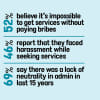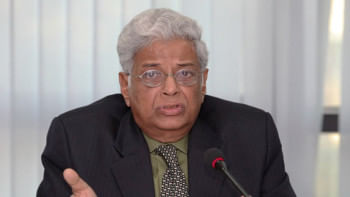A DC doctoring court docs to clear himself is a big red flag

The stories of corruption coming out of public offices nowadays would defeat any movie script. The slyness of tactics that corrupt officials often use to misappropriate public funds and then exempt themselves from legal consequences would shock anyone. The alleged shenanigans of Cox's Bazar's former deputy commissioner Ruhul Amin to clear his name from corruption charges is a case in point.
According to a Prothom Alo report, in 2014, Amin, along with 27 others, had been charged for misappropriating approximately Tk 20 crore in the land accusation process of a power plant project in Matarbari of Maheskhali. Taking the case into cognizance, the court ordered the Anti-Corruption Commission (ACC) to investigate it. But several court officials, including the then District and Sessions Judge Sadiqul Islam Talukdar, allegedly colluded with Amin to delete his name from the list of accused in case documents and forged the plaintiff's signature before sending the documents to the ACC. When the plaintiff learned about the alleged forgery, he filed another case against Amin and seven others, including the judge and his own lawyer. The ACC found proof of forgery subsequently and filed the investigation report with the court on Monday—10 years after the case was filed.
In 2017, Ruhul Amin, suspended from office by then, was sentenced to jail in another corruption case in relation to land acquisition for the Matarbari power plant. The case was about misappropriation of compensation funds allocated for shrimp farms affected by the acquisition, which was apparently done by showing 25 non-existent shrimp farms on paper. Amin and several others were accused but they are all currently on bail in that case.
The extent of the abuse of office in Amin's story starts from the land acquisition process and climbs all the way up to the court, the ultimate place of trust for ordinary citizens. But if a DC can use his power to influence even a judge and forge case documents, who would the public turn to for justice? This is a big red flag in the justice process, and fits with the ongoing trends of lack of accountability mechanisms in public offices, lenient and protective provisions for government employees, collusion among public officers to cover up each other's wrongdoings, lengthy trial processes, etc.—which are all equally troubling as they make a mockery of rule of law. We must break these trends. Abuse of public offices for any personal gain, legal or financial, must be prevented at any cost.


 For all latest news, follow The Daily Star's Google News channel.
For all latest news, follow The Daily Star's Google News channel. 










Comments